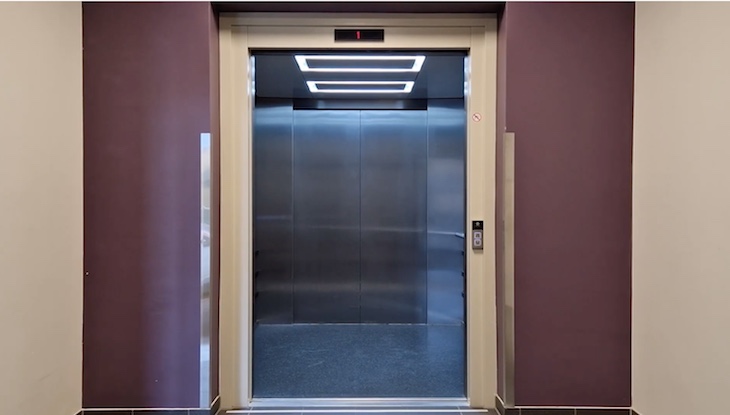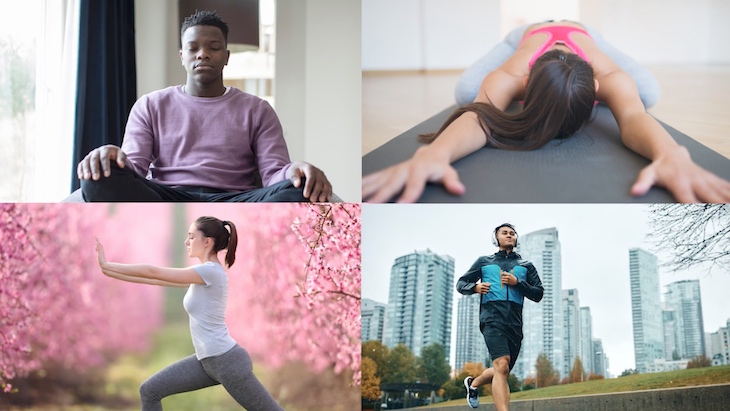Anxiety is one of the most common mental health disorders in the U.S., according to the National Institute of Mental Health. Almost a third of adults will experience an anxiety disorder at some point during their lives.
Occasional anxiety is normal, but for people with anxiety disorder, the anxiety does not go away and can get worse over time. The symptoms can interfere with daily activities such as job performance and relationships.
Below, Andres Felipe Sciolla, a professor of clinical psychiatry in the UC Davis Department of Psychiatry and Behavioral Sciences, explains the most common anxiety disorders. He also shares how they can be successfully treated with therapy, medications and self-care.
The difference between fear and anxiety
Sciolla explains that fear is something everybody experiences. It is a normal response to a threat. Anxiety is more diffuse and is not specific to a threat. He uses elevators as an example.
"It would be normal to fear an elevator if you can see it is at maximum capacity or failing or shaking in a strange way," Sciolla says. "Anxiety would be for someone to be afraid of an elevator even though it's a perfectly functional elevator, and you know it's been recently installed and checked, and yet you still have anxiety about using it."

Several anxiety disorders
"Anxiety disorders are a large family with several individual disorders," Sciolla explains. "But it's important to know that sometimes they happen together. You may have one and a little bit of another one." The two most common disorders are panic disorder and social anxiety disorder.
Others include generalized anxiety disorder, separation anxiety disorder, and a rare disorder known as selective mutism, which is mostly seen in children.
Phobias, in which someone has an intense, irrational fear of something that poses little or no actual danger, is another type of anxiety disorder. "Phobias are quite common. Studies show that approximately 1 in 10 Americans will suffer a phobia at one point in their lives," he says.
Anxiety disorders can be successfully treated
"Anxiety disorders are probably the group of illnesses or disorders we can treat most successfully," says Sciolla.
"For panic attacks, many people use a medication called a benzodiazepine. This family of anti-anxiety medications can work for someone who only has sporadic attacks." He notes that benzodiazepines, which include Valium, Ativan and Xanax, are not used for people with generalized anxiety disorder, a chronic condition, because it is easy to become dependent on them.
"The other mainstay treatment, in terms of medications, are antidepressants, specifically the so-called serotonergic antidepressants," Sciolla explains. "Some of them, such as sertraline or paroxetine increase serotonin transmission in the brain and can alleviate some of the symptoms of anxiety."
Cognitive behavior therapy
In addition to medications, there are several types of therapies specifically for anxiety. "They are highly effective," says Sciolla. "One of the most well-known is cognitive behavior therapy. It is a systematic training of the patient to identify certain thoughts and beliefs that can be challenged. Challenging, switching, reframing and changing those thoughts can alleviate anxiety."

Self-care for anxiety disorders
Self-care can also play an important role. "The most effective self-help strategies are activities that tend to reduce the activation of the stress response system in the body." He explains that the stress response system releases stress chemicals like cortisol and adrenaline. It also increases the heart rate and breathing rate.
Research has shown there are many activities people can do to alleviate this stress response. "Meditation, yoga, Tai Chi, sports, and aerobic exercises can all down-regulate the activation of this stress response system," Sciolla says.
Confronting your fears
He notes that the main coping skill people use for anxiety is avoiding whatever makes them anxious. "Unfortunately, avoidance is the worst thing we can do because it perpetuates the anxiety and makes it chronic. The more we avoid something, the more powerful the fear becomes."
This is why some of the treatments for anxiety are not to avoid the triggers but to expose yourself to as much of the trigger as you can tolerate.
"For example, if public speaking is a source of anxiety, you may want to join Toastmasters," Sciolla says. The organization promotes public speaking in a supportive environment. "We can go to a setting where we feel safer and slowly and progressively expose ourselves. The brain learns not to react. As we practice more, we lose that anxiety."

What to do if you think you may have an anxiety disorder
Sciolla notes that screening can be done by your primary care physician or by yourself. "One of the most common tools to screen for anxiety disorder is a questionnaire called the Generalized Anxiety Disorder 7 or GAD-7. It's widely available on the Internet."
You may also want to go to a therapist. "It can be very effective, and the therapist would be prepared to tell you, 'I think you need medication in addition to therapy,'" Sciolla says.






